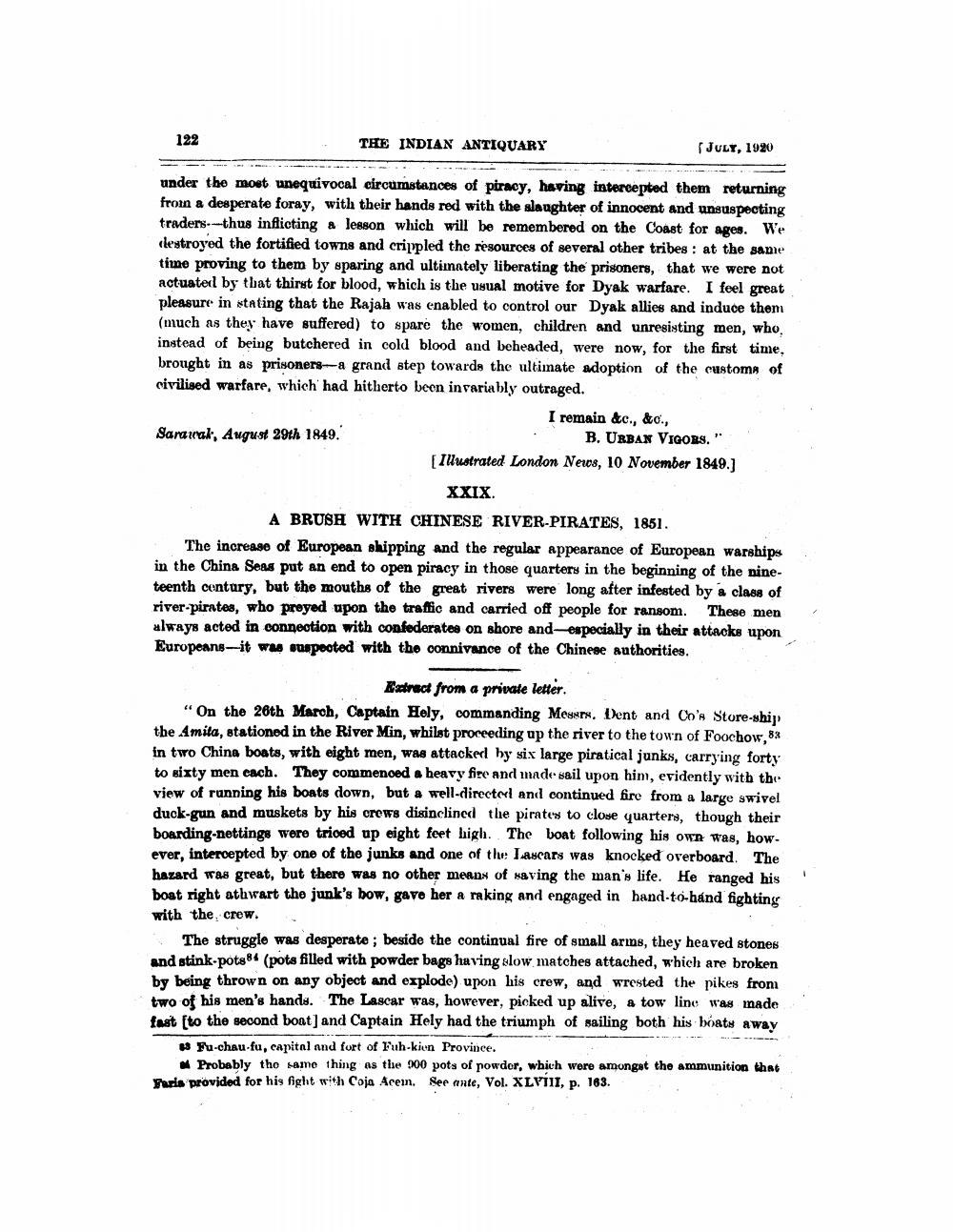________________
122
THE INDIAN ANTIQUARY
[JULY, 1920
under the most unequivocal circumstances of piracy, having intercepted them returning from a desperate foray, with their hands red with the slaughter of innocent and unsuspecting traders--thus inflicting a lesson which will be remembered on the Coast for ages. We destroyed the fortified towns and crippled the resources of several other tribes: at the same time proving to them by sparing and ultimately liberating the prisoners, that we were not actuated by that thirst for blood, which is the usual motive for Dyak warfare. I feel great pleasure in stating that the Rajah was enabled to control our Dyak allies and induce them (much as they have suffered) to spare the women, children and unresisting men, who instead of being butchered in cold blood and beheaded, were now, for the first time, brought in as prisoners-a grand step towards the ultimate adoption of the customs of civilised warfare, which had hitherto been invariably outraged.
Sarawak, August 29th 1849.
I remain &c., &c.,
B. URBAN VIGORS. ' [Illustrated London News, 10 November 1849.] XXIX.
A BRUSH WITH CHINESE RIVER-PIRATES, 1851.
The increase of European shipping and the regular appearance of European warships in the China Seas put an end to open piracy in those quarters in the beginning of the nineteenth century, but the mouths of the great rivers were long after infested by a class of river-pirates, who preyed upon the traffic and carried off people for ransom. These men always acted in connection with confederates on shore and especially in their attacks upon Europeans-it was suspected with the connivance of the Chinese authorities.
Extract from a private letter.
"On the 26th March, Captain Hely, commanding Messrs. Dent and Co's Store-ship the Amita, stationed in the River Min, whilst proceeding up the river to the town of Foochow, 83 in two China boats, with eight men, was attacked by six large piratical junks, carrying forty to sixty men each. They commenced a heavy fire and made sail upon him, evidently with the view of running his boats down, but a well-directed and continued fire from a large swivel duck-gun and muskets by his crews disinclined the pirates to close quarters, though their boarding-nettings were triced up eight feet high. The boat following his own was, however, intercepted by one of the junks and one of the Lascars was knocked overboard. The hazard was great, but there was no other means of saving the man's life. He ranged his boat right athwart the junk's bow, gave her a raking and engaged in hand-to-hand fighting with the crew.
The struggle was desperate; beside the continual fire of small arms, they heaved stones and stink-pots (pots filled with powder bags having slow matches attached, which are broken by being thrown on any object and explode) upon his crew, and wrested the pikes from two of his men's hands. The Lascar was, however, picked up alive, a tow line was made fast [to the second boat] and Captain Hely had the triumph of sailing both his boats away
83 Fu-chau-fu, capital and fort of Fuh-kien Province.
Probably the same thing as the 900 pots of powder, which were amongst the ammunition that Faris provided for his fight with Coja Acem. See ante, Vol. XLVIII, p. 163.




